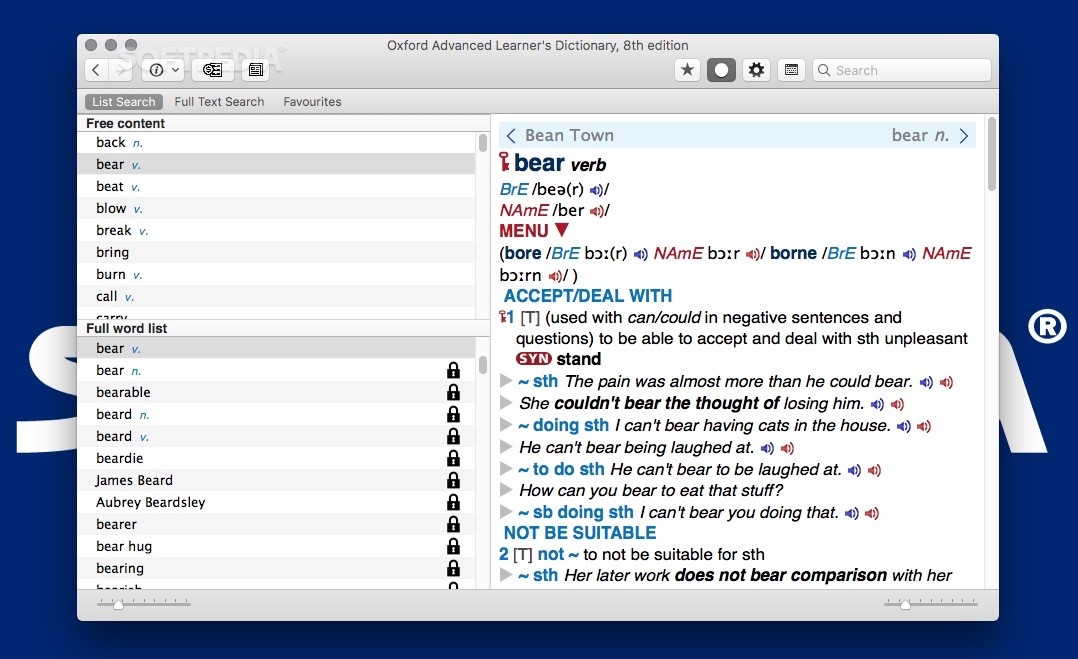

This is too technical for a general learner’s dictionary, but is highly relevant to students of any discipline that deals with statistics. For example, the Oxford Learner’s Dictionary of Academic English (OLDAE) defines the word 'significance' in the context of statistics (after two more general meanings) as ‘the extent to which a result is different from what would be expected from random variation or errors’. Most dictionaries place the most frequent meaning first, but if you are unsure of a word in context, it may be because it is being used with a less frequent meaning that is not familiar to you. In an academic text, it may be a much more specific meaning of a general word. When looking up a word, note how many meanings are listed in the dictionary entry – don’t just look at the first one. Other words are polysemous – they have several different meanings. Some words are easier to get to know because they carry roughly the same meaning in most contexts, for example 'achieve'. There are many different aspects of word knowledge, of which meaning is only the first, but it is a good place to start. For students of English for academic purposes (EAP), that means academic language. Learners of English, especially, need a dictionary based on analysis of the kind of language they need to read and write themselves. In order to do this successfully, the dictionary needs to be based on the analysis of words in real texts and communication. The job of the dictionary is to place a word in each of its possible contexts and explain its meaning in each case. Indeed, it can be argued that a word in isolation has no definite meaning: the meaning only becomes apparent when the word is placed in context. What it means to ‘know’ a word and how a learner's dictionary helpsĪ good dictionary is not just a list of isolated words with their meanings or translations.

#OXFORD LEARNER DICTIONARY ENGLISH DEFINITION HOW TO#
But there are two important things to bear in mind: first, it needs to be the right dictionary for your needs second, you need to be aware of all the different types of information it contains and how to make the best use of it all. Its unique virtue is that it can answer your specific vocabulary question on demand. Diana Lea, editor of the Oxford Learner’s Dictionary of Academic English, explains what it means to really know a word, ahead of her webinar on the subject on 25 September.Ī good dictionary can be an invaluable tool for the independent learner.


 0 kommentar(er)
0 kommentar(er)
